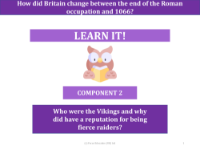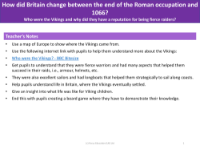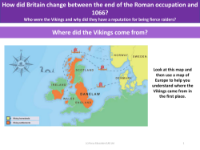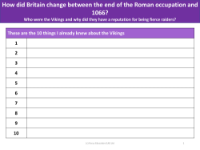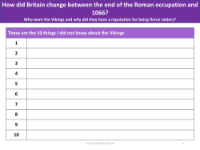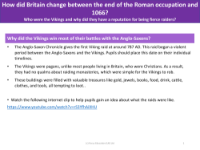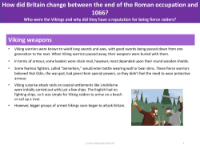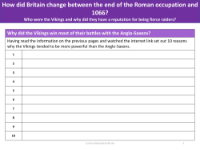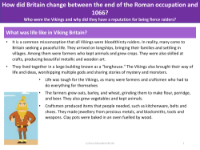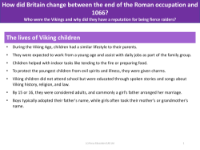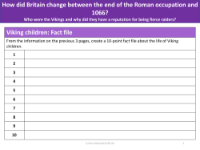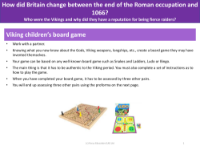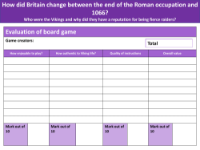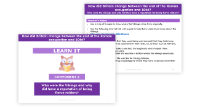The Vikings - Info pack
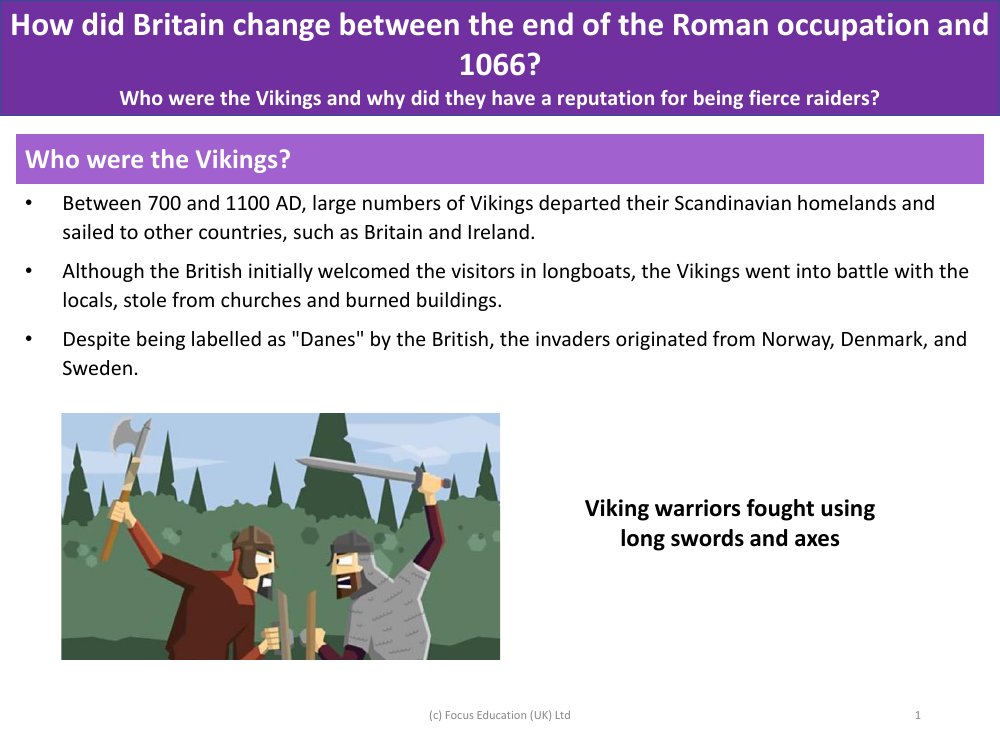
History Resource Description
The Vikings, originating from the Scandinavian countries of Norway, Denmark, and Sweden, embarked on significant voyages between 700 and 1100 AD, reaching shores as far as Britain and Ireland. Initially perceived as welcome guests by the British, their reputation quickly shifted as they engaged in battles with local inhabitants, plundered religious sites, and destroyed property. The term 'Viking' derives from the Old Norse language, signifying 'a pirate raid'. Although infamous for their fierce raiding, not all Vikings were violent; many were peaceful farmers, craftsmen, and traders, known for their artistry in metal and woodwork, and for trading goods such as metals, food, wine, and household items.
The Viking Age was marked by significant events, including the first recorded Viking raid in 787 AD, as noted in the Anglo-Saxon Chronicle. This initiated a tumultuous period with the Anglo-Saxons, with Vikings targeting monasteries for their wealth due to differing religious beliefs—Vikings were pagans, while most of Britain was Christian. Furthermore, in 865 AD, a formidable Viking force set out not just to raid, but to conquer, subjugating several Anglo-Saxon kingdoms. After prolonged warfare, King Alfred the Great of Wessex managed to negotiate a boundary, resulting in the establishment of the Danelaw in the eastern part of England. The Vikings left a lasting influence on Britain, evident in place names ending in ‘-by’, ‘-Thorpe’, or ‘-ay’, and in the city of York, known to the Vikings as 'Jorvik', which became a bustling trade centre.
